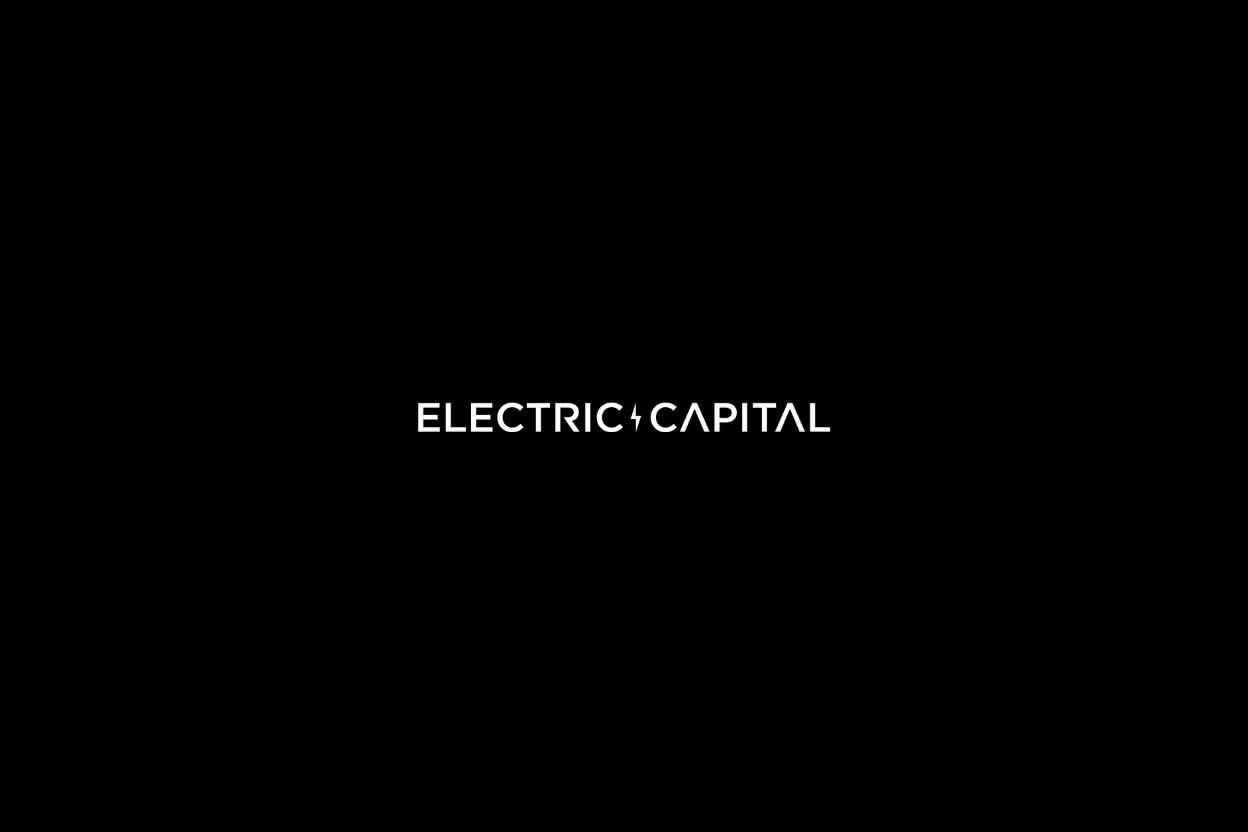Raising funds from Electric Capital can open many doors for crypto and blockchain startups. As a leading venture capital firm, Electric Capital specializes in early-stage investments in crypto projects and Web3 protocols. They back founders who are shaping the future of this space with both equity and token investments.
Understanding how to approach and work with Electric Capital is key for any founder looking to grow their venture. This article answers common questions on the fundraising process, investment criteria, and what founders can expect when partnering with them. Whether you’re wondering about the best way to pitch, deal terms, or how they support startups post-investment, you’ll find clear and practical answers here.
Overview of Electric Capital
Electric Capital stands out as a venture capital firm deeply embedded in the cryptocurrency and blockchain sectors. Since its founding in 2018, it has built a strong reputation for backing early-stage projects that push the boundaries of decentralized technology. If you’re a crypto founder, understanding Electric Capital’s approach and portfolio can clarify whether they are the right partner to support your vision.
Investment Philosophy and Strategy
Electric Capital focuses primarily on early-stage protocols, infrastructure, and foundational platforms in the crypto ecosystem. Their team is composed of experts with extensive technical backgrounds, and their investment decisions reflect a careful and thorough technical due diligence process. They don’t just write checks; they want to engage hands-on with the startups they fund, providing operational guidance and technical insight.
Their strategy zeroes in on projects that form the backbone of Web3, such as scalable blockchains, developer tools, and decentralized infrastructure. This reflects a bet that these foundational layers will drive long-term value and encourage ecosystem growth. Could your project benefit from technical mentorship alongside funding? Electric Capital often plays a “builder” role, not just as an investor, helping teams navigate both product and market challenges.
Fund Size and Typical Investment Range
Electric Capital manages multiple funds with sizable capital under management. Their recent funds have included billion-dollar raises, showcasing their position among the largest crypto-focused venture funds today. For example, in 2023 they announced a fund of around $1 billion, signalling strong institutional support and confidence.
When it comes to individual investments, Electric Capital typically deploys anywhere from $1 million up to $50 million depending on the stage and potential of the project. This range covers a broad spectrum, from seed rounds to later-stage growth capital. Such flexibility allows them to back promising ideas early and continue supporting them as they scale. This means founders are not just securing an initial check but potentially gaining a long-term partner throughout multiple growth phases.
Notable Portfolio Companies
Electric Capital’s portfolio demonstrates a clear focus on impactful projects that have become household names within crypto circles. Here are a few standout investments that show the breadth and quality of their backing:
- Solana: A high-performance blockchain designed for decentralized apps and crypto tokens, known for fast transaction speeds and low fees.
- Near Protocol: A sharded, developer-friendly layer-1 blockchain that emphasizes scalability and usability.
- dYdX: A decentralized finance (DeFi) platform offering advanced derivatives and margin trading built on Ethereum.
These names highlight a pattern: Electric Capital supports innovative projects that solve critical infrastructure problems and provide essential DeFi capabilities. If you’re wondering what kind of startups catch their eye, it’s often those building with a clear technical edge and strong user demand.
This overview should help you grasp what Electric Capital looks for in investments and how their resources can align with your fundraising goals. Next, we'll explore common questions on how to approach fundraising specifically with Electric Capital, including what they expect from founders at pitch time.
How to Prepare for Fundraising with Electric Capital
Raising funds from Electric Capital requires a different level of preparation compared to many other investors. Given their engineering-first approach and deep focus on crypto infrastructure, you need to be ready to show not just a promising business but also strong technical foundations. Preparing well will improve your chances and speed up the entire due diligence process. Let’s break down the key areas you should focus on before entering discussions with Electric Capital.
Crafting a Technical and Business Pitch
Electric Capital expects a pitch deck that goes beyond surface-level storytelling. Your deck should clearly communicate:
- Project Vision: What problem are you solving and why does it matter? Paint a picture of the future you aim to build with your technology.
- Technical Architecture: Walk investors through your codebase design, network protocol, or smart contract logic. Explain the critical engineering choices and how they create durable value.
- Market Opportunity: Outline who your users or customers are, the gaps in current solutions, and how your project fits into the growing blockchain ecosystem.
- Clear Metrics and Milestones: Investors want to see objective evidence of progress. Include user growth, transaction volume, developer activity, or token metrics. Share past accomplishments and a roadmap with concrete targets.
Electric Capital’s team members have strong engineering backgrounds, so vague or purely marketing-driven pitches won’t hold up. They appreciate clarity and precision, much like explaining how an engine works in a new car rather than just showing the shiny exterior.
Understanding the Total Addressable Market (TAM)
Estimating TAM for crypto projects can be tricky but is crucial. Electric Capital looks for projects targeting large or rapidly expanding markets where meaningful revenue or token value can be captured. Unlike traditional startups, crypto projects often blend protocol adoption, tokenomics, and developer ecosystem growth.
Consider these aspects when sizing your TAM:
- Identify the main user base: Are you targeting DeFi traders, NFT collectors, enterprise blockchain users, or developers?
- Assess protocol usage and token flows: How does network activity translate into economic value? For example, how fees, staking, or token sale volumes reflect potential revenue?
- Benchmark comparable protocols: Use data from similar projects to validate assumptions and show realistic upside.
- Highlight scalability potential: Show how your protocol or platform can expand beyond the initial niche with broader blockchain adoption.
Demonstrating a solid understanding of TAM shows you’ve done your homework and understand the economic forces behind your project’s growth.
Due Diligence Expectations
Electric Capital’s due diligence process is intense and technical. If you’re preparing to raise from them, be ready for:
- Code Reviews: Their engineers will evaluate your codebase for quality, modularity, security, and innovation. Clean, well-documented code and active GitHub repositories are assets.
- Security Assessments: Expect scrutiny on how you address vulnerabilities, audit histories, bug bounties, and ongoing security practices.
- Developer Activity Metrics: They’ll look at your team’s contributions and community engagement through repositories, commit frequency, issue resolutions, and ecosystem participation.
The technical due diligence reflects Electric Capital’s core belief: great projects stand on strong engineering foundations. They want to see you acting like builders, not just business people. Keeping your development process transparent and your documentation thorough will build trust.
How actively is your team pushing code? Can you show a history of swift bug fixes or feature launches? These details matter as much as your business model.
Preparing to raise funding with Electric Capital means presenting a balanced mix of technical depth and business clarity. Prioritize transparency, solid engineering processes, and a clear growth story to meet their expectations. This preparation helps you make a strong impression and lays the groundwork for a productive partnership.
The Fundraising Process with Electric Capital
Raising money from Electric Capital involves more than sending over a pitch deck and waiting for a yes or no. Given their focus on deep technology and crypto infrastructure, the interaction takes shape through several distinct steps. Understanding this process helps you prepare effectively and lets you stand out in their due diligence. Here we break down what to expect from first contact through term discussions and beyond the investment itself.
Initial Contact and Meeting Investors
When approaching Electric Capital, think of it as stepping into a technical workshop, not just a boardroom. They seek founders with detailed knowledge and a clear, precise story about the tech behind their project.
To make a strong impression:
- Do your homework: Study Electric Capital’s portfolio and team. Tailor your communication to show you understand where your project fits into their investment thesis.
- Reach out with a focused message: Introduce your project with a concise overview that highlights your core technology and progress milestones.
- Prepare for technical questions: Their vets are often engineers or builders with deep crypto knowledge. Be ready to dive into your architecture, smart contracts, or protocol design in clear terms.
- Show data and traction: Supplement your narrative with metrics—active users, transaction volume, on-chain activity, or developer engagement. These numbers speak louder than generic hype.
- Be ready for multiple meetings: Initial calls often lead to deeper discussions with technical staff and partners. Each conversation is an opportunity to sharpen your pitch and prove your team's expertise.
Electric Capital values transparency and depth. Avoid vague responses or overly polished marketing language. Imagine they are asking: "How does your code work? What bugs have you solved? Why will this protocol thrive technically?" Your level of detail can set you apart.
Term Sheets and Investment Structure
Once Electric Capital decides to move forward, they present a term sheet outlining investment conditions. Their approach includes both equity and token investments depending on the project stage and structure.
Key points to understand:
- Equity vs. token investments:
- Equity usually applies to startups structured as companies where an ownership stake is given in return for funding.
- Token investments often involve buying or receiving native crypto tokens, reflecting ownership or utility within the blockchain ecosystem.
- Valuation and amount: The term sheet will specify how much money is invested for what percentage of ownership or token allocation.
- Governance rights: Expect terms on board seats, voting rights, or advisory roles if relevant.
- Liquidation preferences: These outline how proceeds are distributed if the company is sold or liquidates—common in venture deals to protect investor capital.
- Vesting and founder commitments: Clauses that ensure founders stay engaged and aligned with growth goals.
- Protective provisions: Terms that may require investor approval on major decisions like future fundraising rounds or asset sales.
Founders should review these terms carefully with legal counsel. Electric Capital aims for fair deals that align interests but will want protections typical for early-stage investing. For crypto projects, token treatment and lock-up periods can vary, so understanding those specifics is crucial.
Post-Investment Support and Expectations
Electric Capital doesn’t just provide a cash injection and step back. They actively support founders after closing, bringing operational, technical, and strategic help to the table.
Here’s what portfolio companies typically gain:
- Technical guidance: Access to in-house engineers who can advise on protocol design, security best practices, and scaling strategies.
- Operational expertise: Help with team-building, hiring engineering talent, and product development workflows.
- Network and ecosystem connections: Introductions to potential partners, other investors, and key community contributors that can accelerate adoption.
- Strategic planning: Assistance refining your roadmap, tokenomics, and go-to-market plans suited to crypto networks.
- Ongoing collaboration: They often sit on boards or advisory groups and remain engaged with founders through frequent check-ins and joint problem-solving.
This hands-on approach reflects their background as builders in crypto who know the challenges founders face. If you want a silent funding source, Electric Capital isn’t it. Instead, expect a partner that invests time alongside dollars to help you push through critical growth phases.
Navigating fundraising with Electric Capital requires technical clarity, preparedness for rigorous investment terms, and readiness to collaborate closely after funding. For builders who meet these expectations, it can be a long-term partnership that boosts both the quality and scale of your project.
Common Challenges and How to Address Them
Raising funds from Electric Capital brings unique challenges that stem from their deep technical expertise and crypto-focused investment style. Founders must strike a balance between showcasing complex technology and articulating clear business value. There are also delicate negotiations around equity and tokens, alongside regulatory and security concerns specific to blockchain projects. Understanding these areas upfront can save time and build trust.
Balancing Technical Depth and Business Clarity
Electric Capital’s team includes engineers who will scrutinize your technology closely. At the same time, they want to see how the tech advances business goals and market opportunity. How can you do both clearly?
- Explain technical concepts with simplicity: Use analogies or diagrams to break down complex protocols or smart contracts. Avoid jargon unless fully defined.
- Link technology to outcomes: Show how engineering choices drive scalability, security, or user experience. For example, “Our sharding design reduces transaction latency, enabling thousands of daily active users.”
- Prepare a layered pitch: Start with a high-level overview, then dive deeper in appendices or follow-up conversations.
- Demonstrate technical progress with metrics: Highlight on-chain activity, code commits, security audits, or developer engagement.
- Be ready for detailed questions: Electric Capital digs deep, so make sure your team is fluent with the codebase and can discuss trade-offs honestly.
Think about your pitch like explaining a machine: first show what it does for people, then open the hood to explain how it works.
Managing Equity and Token Allocation
Negotiating how much equity and tokens to offer can be tricky. Founders want to keep enough control to steer their vision but also attract significant investment.
- Understand the mix: Electric Capital often invests in both equity and tokens. Equity gives ownership in the company entity; tokens represent protocol ownership or usage rights.
- Define token economics clearly: Present a transparent token allocation plan covering founders, investors, the community, and reserves. Explain how tokens will gain value over time.
- Protect founder control: Use vesting schedules and lockups on both equity and tokens. Negotiate governance frameworks that prevent dilution or hostile takeovers.
- Prioritize alignment: Ensure your token model incentivizes long-term commitment from all stakeholders.
- Consult legal experts early: Token structures can impact securities regulations and tax implications, so get guidance before finalizing deals.
Striking the right balance is like tuning an engine—you want power but controlled acceleration.
Navigating Regulatory and Security Concerns
Regulations in crypto remain complex and evolving, and Electric Capital probes how well founders have prepared on legal and security fronts.
- Stay informed on legal requirements: Securities laws, KYC (Know Your Customer), AML (Anti-Money Laundering) rules, and international compliance all matter. Your fundraising must adhere to these.
- Have thorough documentation: White papers, Private Placement Memorandums (PPMs), and compliance reports build credibility and reduce risk.
- Highlight security measures: Share results from smart contract audits, bug bounty programs, and ongoing monitoring procedures.
- Prepare for due diligence: Expect Electric Capital to review your legal structure, licenses, security protocols, and incident history.
- Plan contingency strategies: Address how your project would handle hacks, regulatory changes, or governance disputes.
Don’t treat regulatory and security steps as hurdles but as pillars that support investor confidence and long-term viability.
Facing these challenges confidently means you prepare comprehensively and communicate clearly. Electric Capital’s approach rewards technical credibility combined with sound business and legal planning. With this balance, you strengthen your position to raise significant capital and build a lasting partnership.
Frequently Asked Questions from Crypto and Blockchain Founders
When raising funds from Electric Capital, founders often have specific questions about how the firm operates and what to expect. The answers can clarify the path forward and help you tailor your approach. Below, you'll find detailed responses to the most common questions founders ask about fundraising with Electric Capital. These insights provide a realistic view of their investment stages, equity stakes, support, evaluation criteria, and relationship management.
What stages of funding does Electric Capital invest in?
Electric Capital primarily invests in early-stage rounds, including seed and Series A funding. They focus on startups that are building foundational blockchain infrastructure, developer tools, and protocols with scalable potential. However, their flexibility extends to later-stage investments if the project demonstrates strong growth and technical milestones.
Founders can expect Electric Capital to support multiple stages, sometimes participating in follow-on rounds to help fuel continued development and ecosystem expansion. Their preference is to back projects from early growth phases so they can contribute both capital and technical input over time.
How much equity or tokens does Electric Capital typically take?
The amount of equity or tokens Electric Capital takes varies depending on the deal structure and project stage. Typically, their initial investments range from $1 million to $50 million, with ownership or token allocation negotiated case by case.
- For equity deals, they usually target single-digit to low double-digit percentages reflecting their investment size relative to valuation.
- For token investments, allocation depends on the tokenomics model and the project's stage, often involving vesting schedules and lockup periods to align long-term incentives.
Founders should expect a negotiation that balances fair valuation with provisions protecting both the project and investor interests. Transparency on token supply, distribution, and governance plays a significant role in these discussions.
Does Electric Capital provide support beyond funding?
Yes. Electric Capital is known for its hands-on involvement. Beyond funding, they provide:
- Technical guidance from engineers familiar with blockchain protocols.
- Strategic advice on product development, scaling, and token economics.
- Hiring support to build strong engineering teams.
- Network access to ecosystem partners, other investors, and developer communities.
- Ongoing collaboration, often including board or advisory roles to stay closely involved.
This support is part of their “builder” philosophy, aimed at helping founders overcome technical and market challenges throughout growth stages.
What technical criteria does Electric Capital prioritize in evaluations?
Electric Capital’s evaluation centers on engineering excellence and project fundamentals. Key technical criteria include:
- Code quality and activity: Regular commits, open-source contributions, clean architecture, and well-documented repositories matter.
- Security practices: Audit history, vulnerability management, and bug bounty programs are carefully reviewed.
- Protocol design: Scalability, cryptographic robustness, and innovation in architecture play a major role.
- Developer and user engagement: The health of the developer ecosystem and network adoption metrics signal sustainable growth.
The team’s strong engineering background means founders should expect deep technical due diligence. They seek projects with solid foundations that can drive long-term protocol value and ecosystem growth.
How can founders maintain long-term relationships with Electric Capital?
Building a lasting partnership with Electric Capital relies on consistent communication and delivering on milestones. Founders should:
- Keep them updated regularly on technical progress, product developments, and key challenges.
- Be transparent about setbacks or pivots while showing data-driven decision-making.
- Engage actively with their team, leveraging their technical and strategic expertise.
- Fulfill commitments around token vesting, governance participation, and investor coordination.
- Invite collaboration on ecosystem initiatives such as hackathons or protocol upgrades.
Regular, open dialogue helps maintain trust and creates opportunities for further support. Electric Capital views itself as a long-term partner, so investing effort into this relationship benefits founders well beyond the initial fundraising.
These answers reflect Electric Capital’s focus on supporting technically strong, visionary projects with an active partnership approach. Understanding their expectations helps founders prepare thoroughly and build productive investor relationships.
Conclusion
Raising funds from Electric Capital demands clear technical insight and thorough preparation. Founders should focus on showing strong engineering foundations alongside a solid business case. Electric Capital looks for projects with scalable technology, transparent token economics, and a willingness to engage deeply throughout growth phases.
Building a partnership means more than securing capital—it requires open communication and collaboration beyond the initial investment. Founders who align with their hands-on approach can access valuable expertise and network support.
Approach the fundraising process knowing Electric Capital values builders who understand their code and market equally well. Taking the time to prepare technical details, financial plans, and compliance shows respect for their discipline and increases your chances of success.
What step will you take today to strengthen your pitch and partnership readiness? Your project’s future depends on it.






